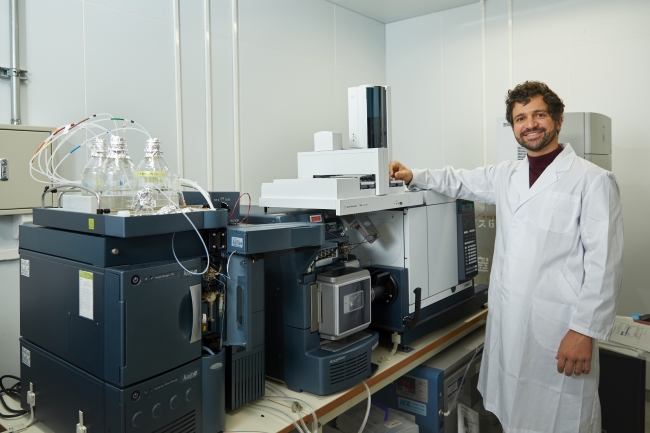受賞のお知らせ~
GUIDA Yago 特別研究員がJapan Society for Environmental Chemistryより Royal Society of Chemistry Awardを受賞
概要
受賞者氏名: GUIDA Yago(資源循環領域)
賞の名称: Royal Society of Chemistry Award
授賞機関: Japan Society for Environmental Chemistry
受賞年月日: 2022年06月16日
受賞対象: Occurrence of chlorinated paraffins in polyvinyl chloride samples from consumer goods available in the Japanese market, Joint Conference on Environmental Chemicals, Abstract, 392-393, 2022

ひとこと
I am very happy and honored to receive the Royal Chemistry Society Presentation Award by the Japan Society for Environmental Chemistry at the 30th Joint Conference on Environmental Chemicals for presenting the study entitled: "Occurrence of chlorinated paraffins in polyvinyl chloride samples from consumer goods available in the Japanese market". As a new Research Associate, I had the opportunity to participate in this study, conceptualized by my supervisor, Dr. Natsuko Kajiwara and Dr. Hidenori Matsukami at the Material Cycles Division of the National Institute for Environmental Studies. This study is a first step into the so much needed comprehension about the occurrence of regulated chemicals such as persistent organic pollutants (POPs), like short-chain chlorinated paraffins (SCCPs), in consumer goods in Japan. From the results obtained, we were able to highlight that regulating chemical additives at a national level is not enough to prevent human exposure to them. Due to the import of consumer goods unlabeled for the presence of hazardous chemicals or not monitored, Japanese people are still exposed to SCCPs even though it's production and use has been regulated in Japan for several years. Considering three different categories of polyvinyl chloride (PVC)-based products — electrical and electronic cables, house interior products, and children’s products — the predominant occurrence of SCCPs in children’s products lights up a signal of alert due to the more physiological sensitive life stage of children and their behavior to take objects into their mouths. Moreover, our results also showed that when some of those PVC-based products reach their end-of-life, they must be disposed of in such a way that the POP content is destroyed or irreversibly transformed in an environmentally sound manner. Thus, such products cannot enter recycling streams. The award is a nice incentive to continue our research lines on the occurrence of hazardous chemicals in consumer goods, from their manufacturing to their final disposal, to support a safe implementation of circular economy and, ultimately, to protect the environment and human life.


